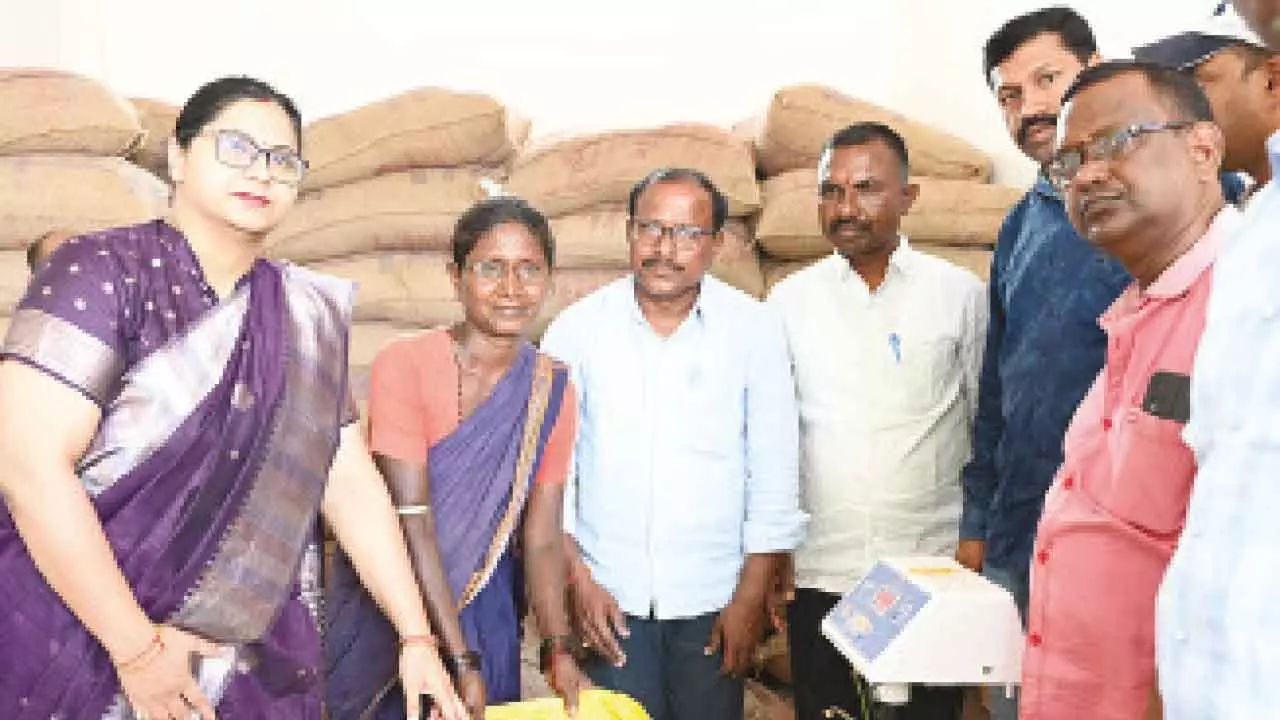Hyderabad: The Civil Supplies Department in Telangana is facing challenges in meeting its targets for the State government’s flagship Public Distribution System (PDS) Sanna Biyyam (superfine rice) programme. To address this, officials have decided to strengthen the tracking mechanisms for paddy procurement.
This year, Telangana recorded a bumper paddy production of 1.5 crore metric tonnes (MT). However, the government procured only 50 lakh MT of paddy from farmers, falling short of its planned target of 80 lakh MT. The target included 30 lakh MT of coarse paddy and 50 lakh MT of the superfine variety, known as “sannarakam.” Despite offering a bonus of ₹500 per quintal on top of the Minimum Support Price (MSP) of ₹2,300, much of the paddy was sold to buyers in neighboring states instead of the State government.
According to officials, the initial procurement target was 90 lakh MT, which was later revised to 70 lakh MT. Eventually, only 50 lakh MT was procured. Farmers opted to sell their produce to private traders and millers in states like Karnataka, Andhra Pradesh (AP), and Tamil Nadu, where they received higher offers. For instance, paddy from the erstwhile Mahbubnagar district reportedly went to Raichur in Karnataka, while produce from Khammam and Nalgonda districts was sold to buyers in AP. Paddy from areas like Huzurabad near Karimnagar even reached markets in Chennai.
To ensure sufficient stocks for the Sanna Biyyam distribution under PDS, the government has decided to tighten procurement rules. Officials emphasized that the Civil Supplies Department should be given priority in procuring paddy. Additionally, rice millers must prioritize milling government-procured paddy and maintain separate records for government and private transactions.
A government order (GO) mandates that millers who fail to process government paddy will lose their eligibility to mill private paddy, which could lead to seizures of stock. “We usually don’t track these details closely, but now we are capturing all the information,” an official stated. This step aims to enforce compliance and secure enough superfine rice for distribution through the PDS system.











